The mountains were calling.
I recently went on a solo creative retreat to work on my fantasy novel. I know it sounds swoony, but if you’re feeling jealous it may be worth reading the footnote. To be completely honest… it was a mixed bag.1
Even so, I’m so glad I did it.
I’m going to share what I learned so you can do the same.
I feel compelled to acknowledge my privilege in having the funds and time for this getaway. And a partner who can take parent duty for the weekend. But I also question what is driving me to say this.
Imagine a dad making half apology for a work trip.
It would never happen.
I want to thank
for modeling that a mother can take time for their creative work and for writing this piece. I also want to shout out for writing the counter argument here. The day after drafting this post I came across hers. And she’s right.You don’t need cabin in the woods to make art.
Maybe you’d rather make space for your creativity closer to home.
I started my first book in the public library.
But to write fiction it felt like my creative ecosystem needed more time and space. And I’m grateful I was able to prioritize my creative work in this way.2
Here are some questions to consider when planning your own creative retreat.
1. What environments does your creativity thrive in?
Urban or Natural
Cozy or Open
Quiet or Busy
Isolated or Companionship
Quaint or Modern
This is a good start to give you an idea of where you might go. Then think about practicalities. Sure, an isolated cabin sounds great. But do you really want to cook your own meals? Be sure to consider these practicalities.
Meals & Snacks
Local Businesses & Shops
Transportation
Season & Temperature
Cost
Think outside the box. I spent hours looking at expensive Air B&B’s before finding this isolated cabin at an Episcopal church camp.3 It was a welcoming space with a pride flag flying alongside the stars and stripes. It was also super affordable with a really cute Parent Trap aesthetic.
There were also beautiful handmade quilts, a kitchen to do my own cooking, and a screened in porch with a stunning view.
If you can’t manage a getwaway consider spaces at home or in your local community: libraries, gardens, parks, coffee shops. Even a micro retreat (or an “artist date” in Julia Cameron speak) can be so restorative.
2. What does your creative ecosystem need?
Your creativity is more than your productivity.
Be wary of using a “retreat” as an excuse to beat yourself up about output. Think holistically about your creative process and what it is that you need.
I chose not to focus on word count for my writing retreat. I’ve done NaNoWriMo countless times. (Twice for this story.) I know I can bang out words.
But what I really need is time to sink into my story; to do the slow work of world and character building.
You may need something different.
Here are a few themes you could mix & match for your retreat.
Dream
Rest
Read
Explore
Dance
Play
Paint
Ideate
Edit
Or you could choose a muse.
Plan a ready-made retreat by bringing along a creative workbook with prompts.
Some of my favorites are:
Conscious Creativity Workbook by Phillippa Stanton
Steal Like an Artist Journal by
The Wildflower Workbook by Katie Daisy
or… (I’ve literally just realized I should include my own.)4
Discover Your Creative Ecosystem & Workbook by… me.
I probably should have envisioned writing this post specifically to market my book.
I’m still new to this. 😂
3. Pack “too many” books.
Or snacks.
Or paints.
Or notebooks.
Whatever lights you up.
Something I am struggling with for my fantasy novel is really digging in to the research I want to do. Sure, I could have picked 3 books and dutifully read my way front to back through one after another. There are times in my life I would have done that.
But when I started gathering books connected to my novel I wanted to bring them all.
So I did.
The best thing about a solo creative retreat is that no one can shame you for “overpacking.”
I had so much joy in these books. I laid them out on the extra beds and rearranged them like tarot cards. Seeing the beautiful covers next to each other drew connections I hadn’t made before.
Over the weekend I dipped in and flipped around to the best bits.
This is not how I read.
But it was amazingly freeing. I’ll definitely read most of these books back to front. But dipping in and out gave me a better idea of what I can find in each one, how they related to each other, and what might be useful for my story.
I also realized I need to have all of these books close to hand. Tracking them down felt like searching the four corners of the earth. Now they’re lined up on two shelves in the living room so I can continue my work.
4. Embrace your inner kid.
My main goal for the weekend was to generate as many ideas as possible without deciding whether they were “good” or not. A week before my trip I started panicking that I “wasn’t ready.” I realized this was rooted in a vision I had of finishing a book on a retreat. Maybe that’s possible, but that’s not what my book really needs right now.
What I need are ideas.
I have the bones of the story. Some themes. But it’s not quite working. (I can say that, right?)
We shouldn’t be ashamed of our stories not working.
First drafts don’t work. Sometime second drafts don’t work.
My story needs some major structural changes. Trotter to Aragorn type stuff.
Working this out I have a tendency to stay in my head. I spin the same ideas in circles tying themselves up into a gordian knot.
Journaling anxious thoughts about the retreat I quickly saw what I needed was permission to have lots of bad ideas. I’ve holding so tightly to the idea of “good” that I’m freezing my inner storyteller. For some reason I experience this more often with fiction than other types of writing.
So I set out to generate as many story ideas as possible.
Essentially creating a new process along the way.
I packed a bunch of index cards (less pressure than notebooks, right?) and crayons and brush pens. And I started making notes.
Using swooshy brush pens and waxy crayons made it all feel less serious.
I came away with a new creative process and tons of ideas that I can play around with in my story.
You don’t have to use crayons, but think about the tools that are less pressured, that give you sensory joy, or what you loved as a kid. Our inner child has all of our creativity without the harsh inner critic and you’ll have a much better time if they are at the wheel.
5. Go for a walk.
Try not to work the whole time.
During grad school I rented a room at Anam Cara Writer’s & Artist’s Retreat in Ireland. (I was already in London so this was super close and affordable.)
There I was on a gorgeous island and I spent most of my time staring at my laptop pounding out my thesis.
I wasn’t even looking out the window.
The time pressure was due to reasons I won’t go into here, but after I reached a certain threshold I came out of my room. I watched a film with the other artists, went to an Irish pub, a poetry reading, and wandered around on the beautiful trails.
What I didn’t realize at that time was how these things aren’t “rewards.” They are deeply intrinsic to the creative process.
This time around I didn’t pressure myself to spend the whole time writing and researching. I photographed my books on the handmade quilts. I ate chocolate and brewed copious cups of tea. I went for walks around camp and stumbled outside to watch the sunrise. I even took self portraits with a rickety tripod and went for a hike where giant rocks towered over me with lessons I could never find in a book.
Sure, I could have written more words, done more research, cranked out more ideas. But what I’m learning is that there is no end to work.
There’s always more.
So we have to tend to our creative ecosystem as we go.
If you enjoyed this post here are a few ways you can support my creative process.
Leave a comment! (This one’s my favorite.)
Share this post.
Sign up for Self Publishing 101 or join the The Companionship.
Subscribe or submit work to
.Read my book! (Curious what I mean by creative ecosystem? Start here.)
Let’s chat.
Have you gone on a creative retreat? How was it?
What would your ideal retreat look like?
How else might you carve out time for your art?
Your project is important and it deserves time and space to flourish.
Even if that seems hard.
No one wants to hear you complain about your creative getaway, but for full transparency all the good things were balanced out with difficulties related to chronic health conditions and hypersensitivity.
Just now my kid is banging quite loudly on something metal in his room. I’m charging forward. This post will probably be imperfect and full of typos. Time to think about my story whilst not being assaulted with sound was something I desperately needed.
Camp Mitchell in Petit Jean Arkansas for the curious.
I am absolute rubbish at marketing. 😂




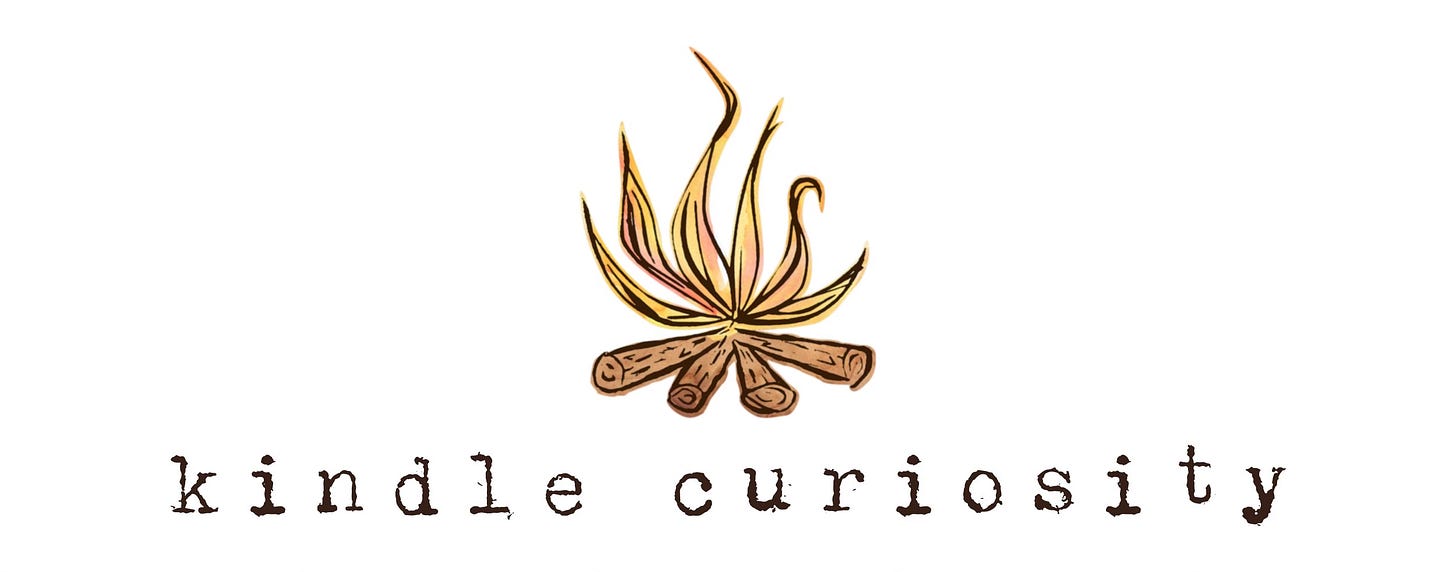
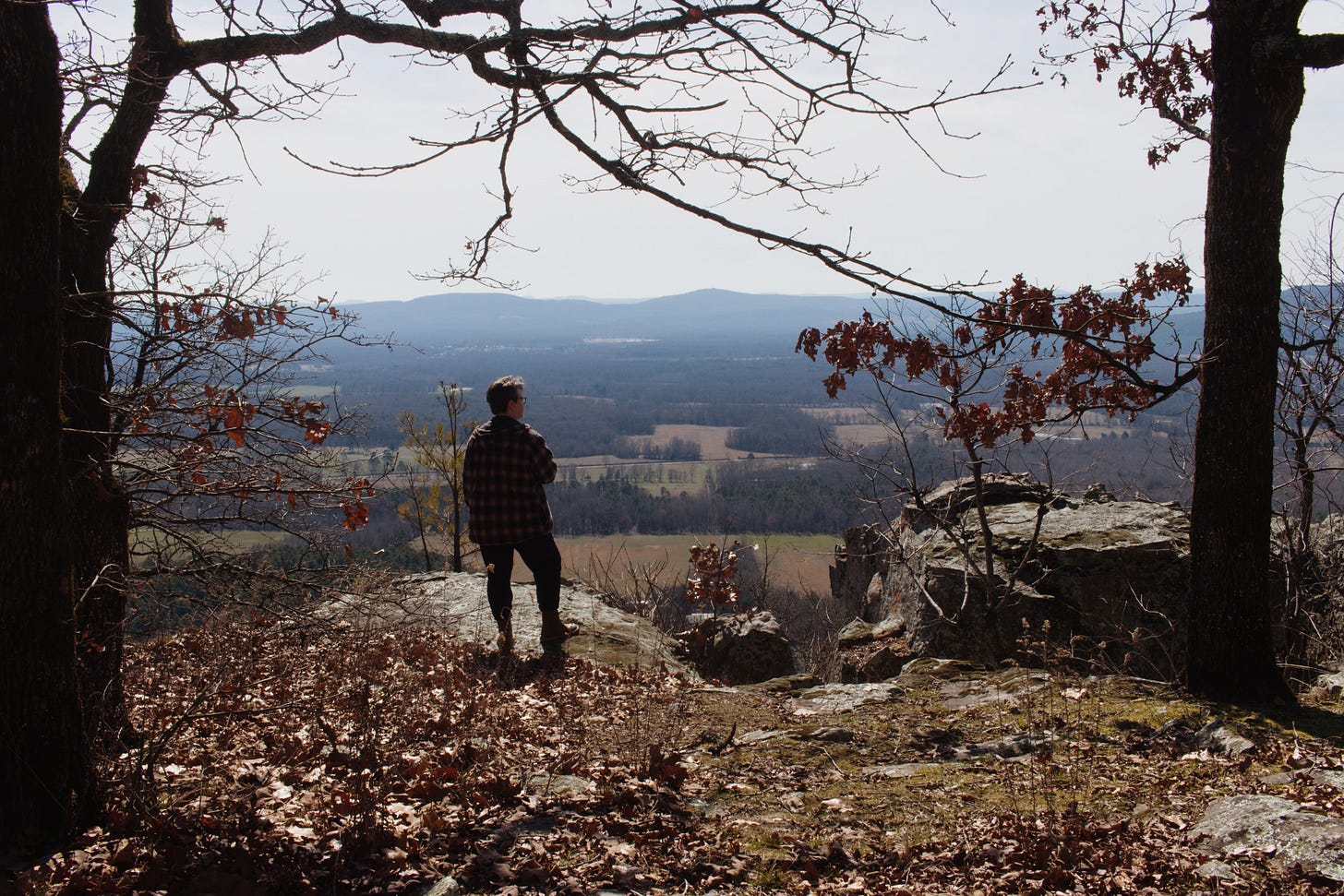
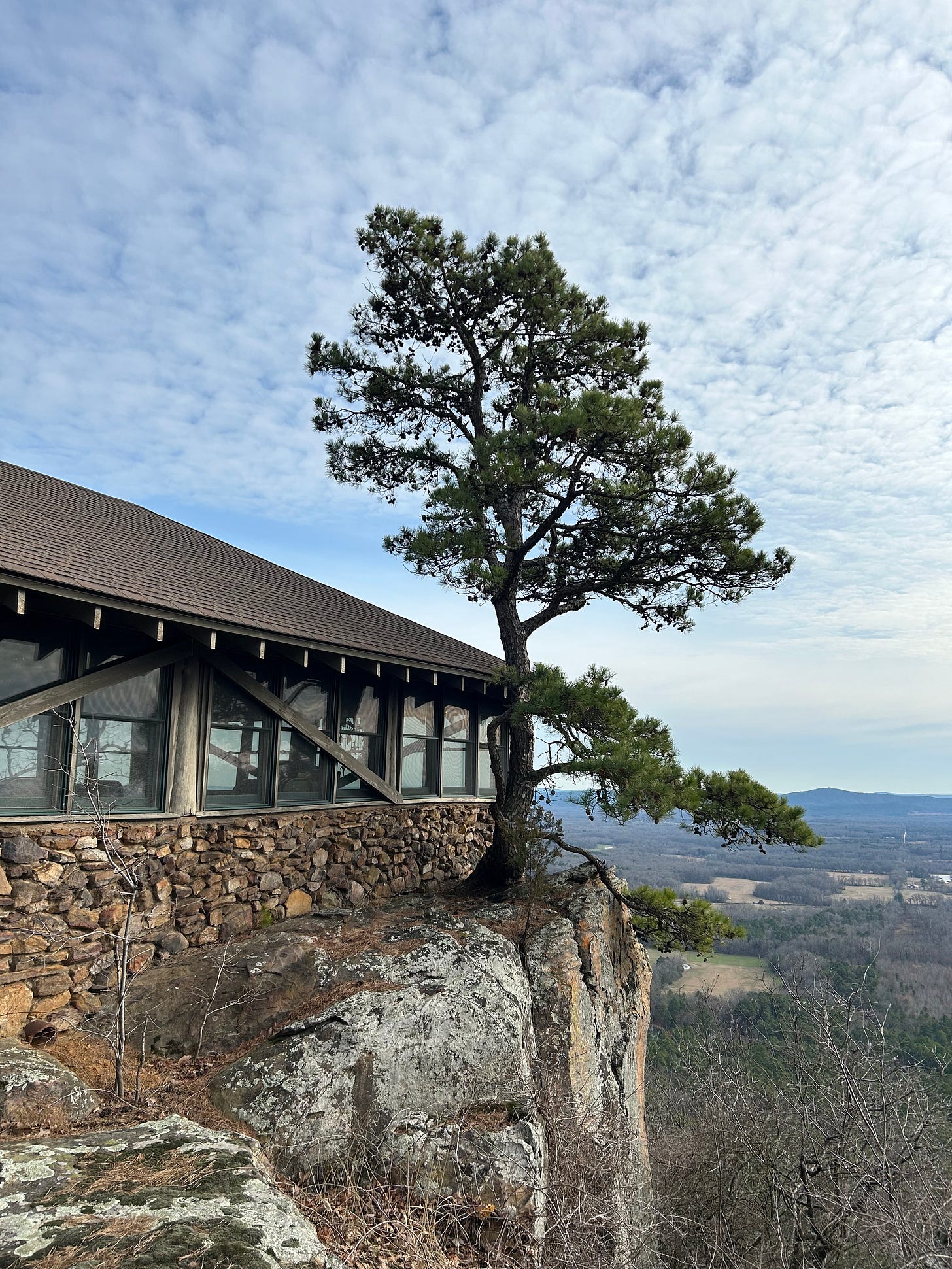


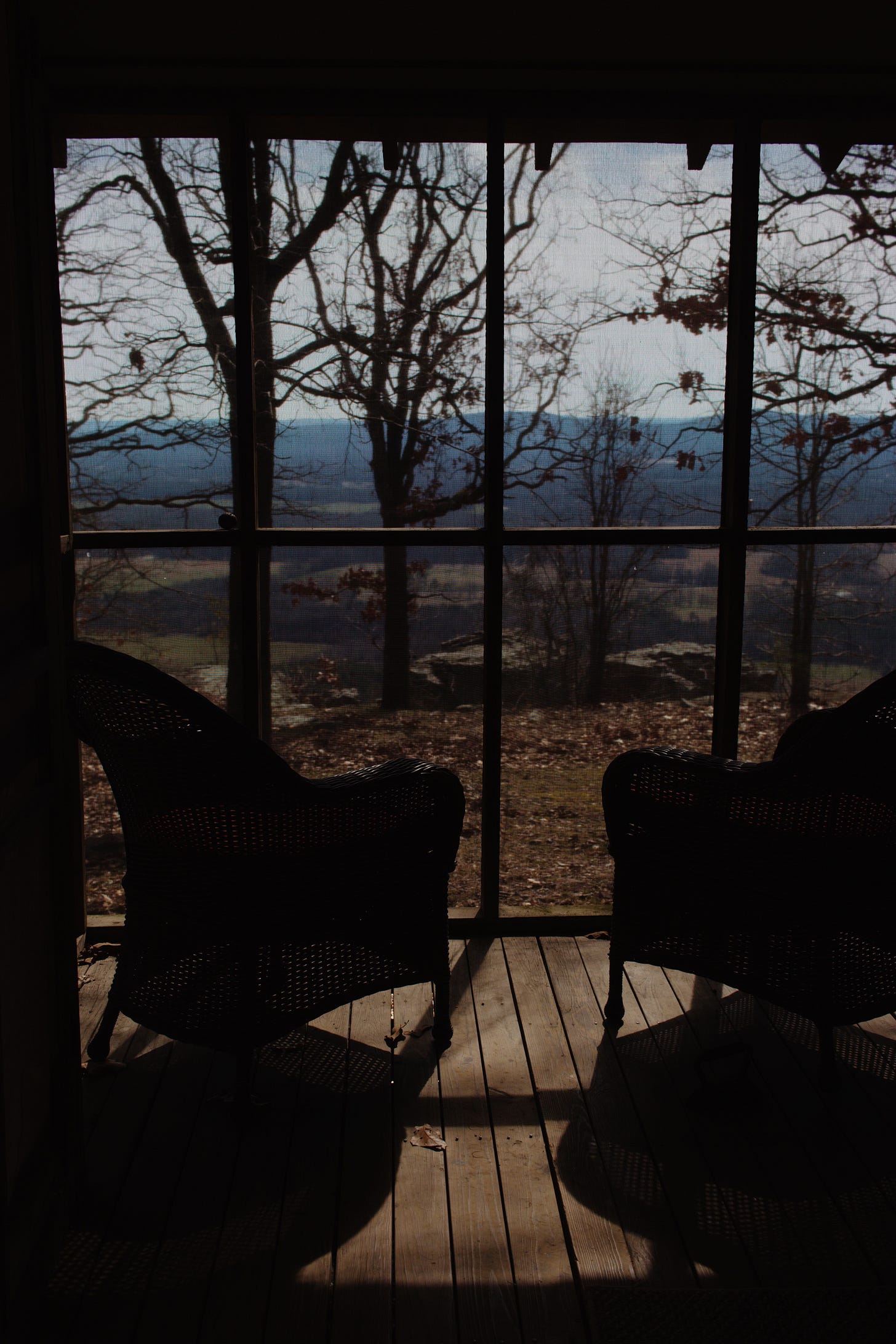
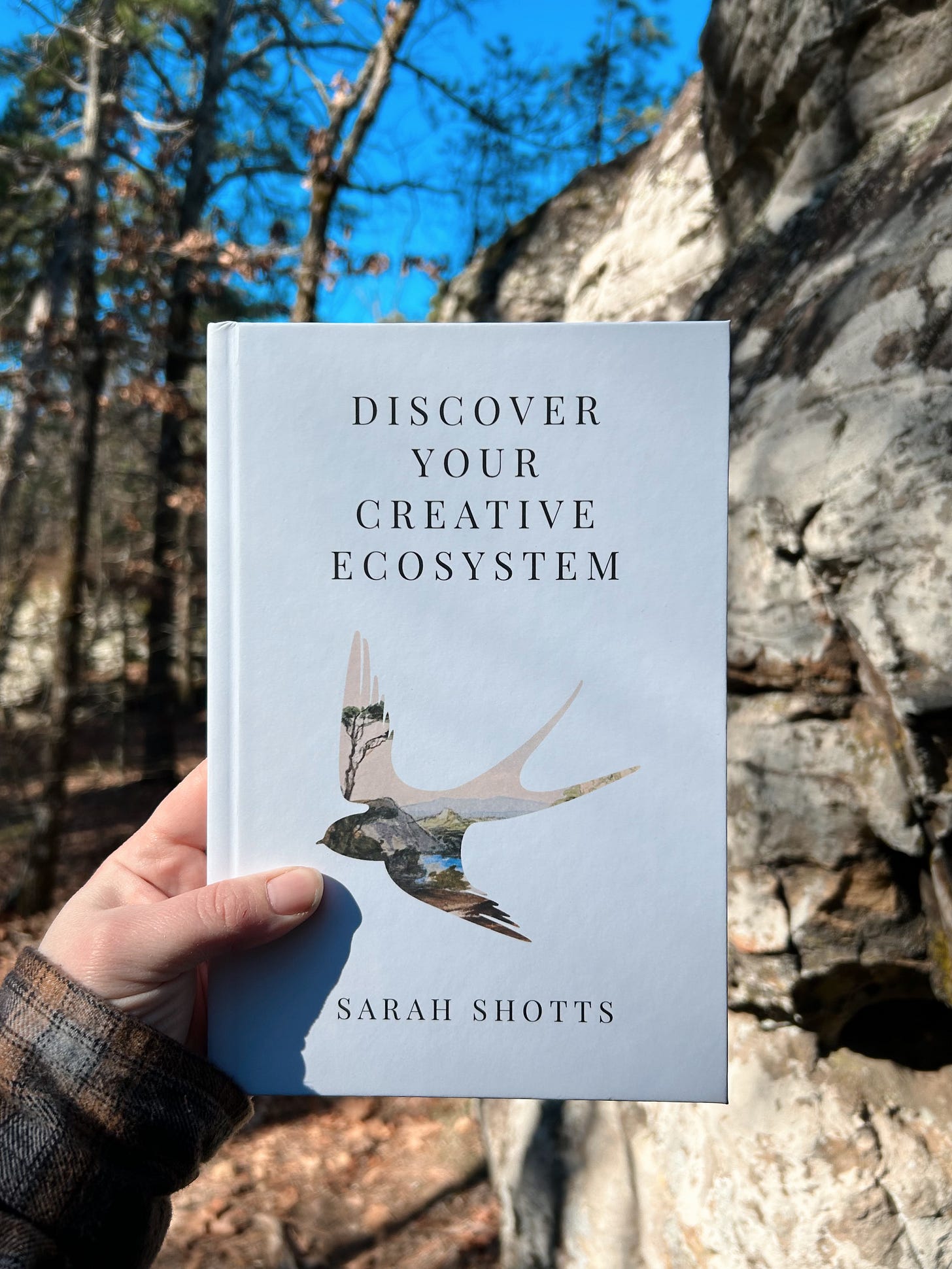


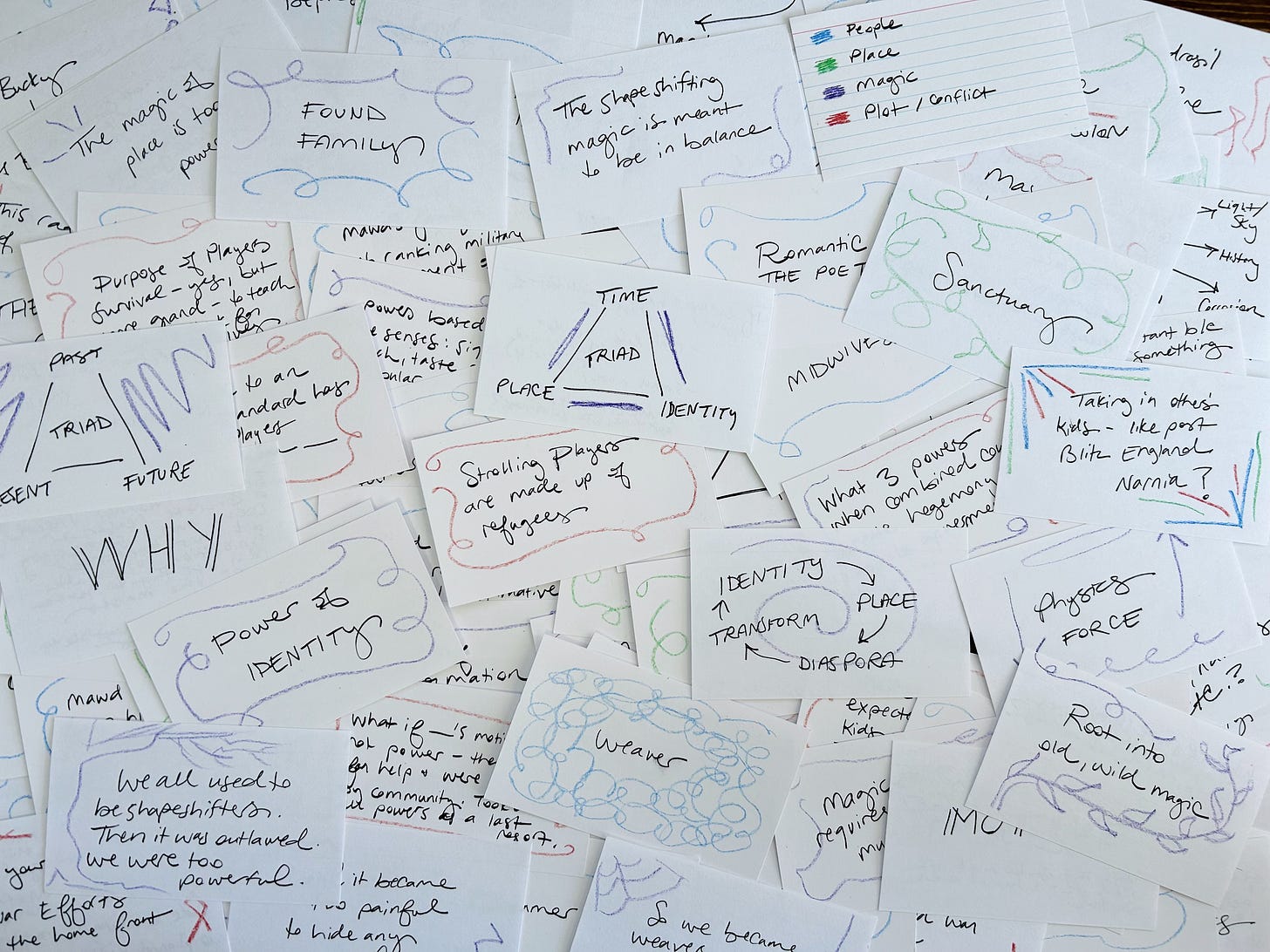
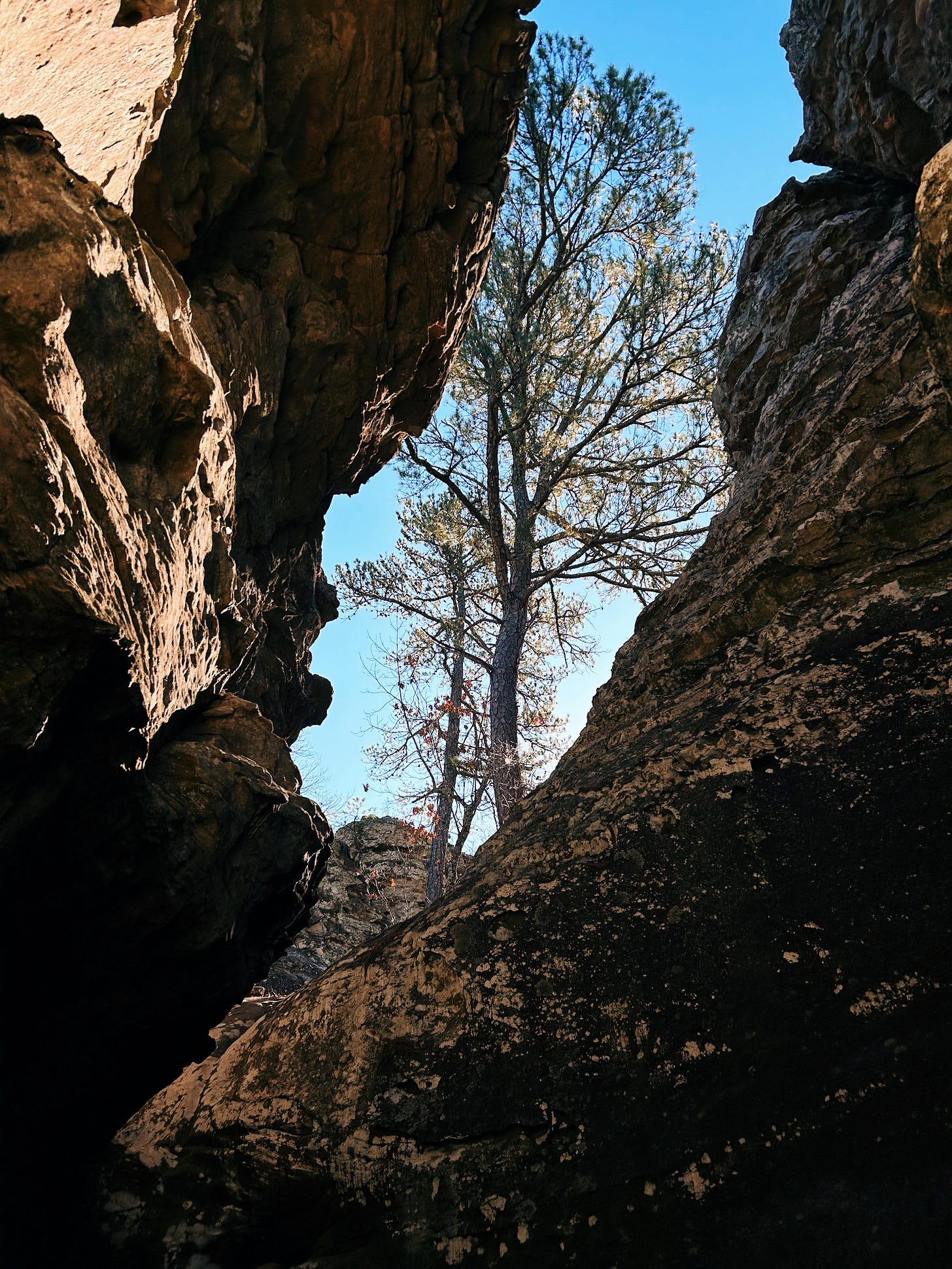



I have a retreat planned for next month and a post about past ones planned for next week (of course, now I feel like everyone is writing about retreats and that it's a more fraught topic than I thought, lol, but I'm still going to do it because it was an easy thing to do while I prep madly for said retreat. Haha!) I think I've done 3 alone and 2 with my cousin who is also a writer--this one will be with her, too. These are great tips!
As an update, I decided with my health right now I would rather take this retreat with my husband. I arranged for my parents to care for our daughter. We plan on staying in an isolated airbnb by the water and we will spend time together in meals and during breaks. I asked him for a writing retreat with his company. We are excited.